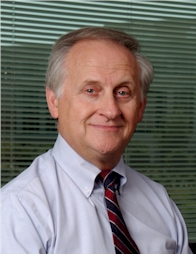 While we mentioned the biography of Calvin by Herman Selderhuis in the lead article, here we have a much abbreviated but nonetheless effective smaller summary of the life of John Calvin. This small book would be a good introduction or review of the person and work of the most influential Reformer of the sixteenth century. In his popular style of writing, Piper focuses on what he sees as the central theme in the life and ministry of Calvin, the supremacy and majesty of God. He frequently refers to Calvin’s passion for this theme.
While we mentioned the biography of Calvin by Herman Selderhuis in the lead article, here we have a much abbreviated but nonetheless effective smaller summary of the life of John Calvin. This small book would be a good introduction or review of the person and work of the most influential Reformer of the sixteenth century. In his popular style of writing, Piper focuses on what he sees as the central theme in the life and ministry of Calvin, the supremacy and majesty of God. He frequently refers to Calvin’s passion for this theme.
I was struck with several comments in the foreword written by Gerald Bray, a professor at Beeson Divinity school in Birmingham, Alabama. “In this world, Calvin’s voice needs to be heard again. God will not be mocked, and in the end we shall discover that He is our sovereign Lord. what will He say to you on the day of judgment?” Bray referred to Calvin as the greatest, but among the most controversial, of Christian leaders. As was pointed out in the opening article in this edition of Equip to Disciple, more people know about Calvin than know him. They have not read his writings, sermons, or letters. He has been a caricature in modern times.
While I might differ with Bray’s assessment that Calvin was not the original thinker as was Luther or Erasmus, I agree that he was the most influential. Calvin’s Institutes of the Christian Religion is one of the best systematic writings on biblically Reformed theology in print. untainted by the later Enlightenment thinking, like so many after him, reading the Institutes is simply like reading the Bible in systematic fashion.
Piper is right when he says that Calvin would prefer us begin with God rather than him because nothing was more important to Calvin than God’s supremacy over all things. Piper also underscores Calvin’s passion for the word. Though he faced many trials, sicknesses, and other tribulations in the loss of family members, his life and his ministry were characterized simply by expository teaching and preaching of the word. As an example, Calvin began a series on the book of Acts on August 25, 1549 and ended it in March 1554. He preached through book after book of the Bible; and Piper agrees with B.B. Warfifield, “no man ever had a profounder sense of God than he.”
Calvin is often thought of as a stern, hard, emotionless man, which could not be farther from the truth. He wrote to a friend at the time of his wife Idelette’s death, “I have been bereaved of the best companion of my life, of one who, had it been so ordained, would have willingly shared not only my poverty but even of my death… she was a faithful helper in my ministry.”
Pastors, teachers, and Christians in general would enjoy and benefit from reading this little abbreviated biography and hopefully desire to read a more extensive version, such as the others mentioned in this edition.
